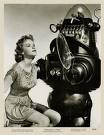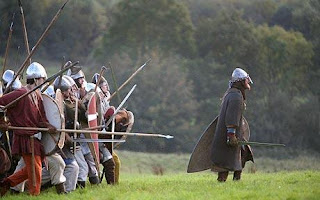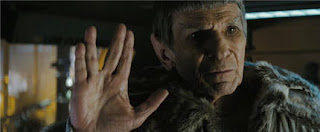R.I.P. Harold Pinter

I recall my father telling me when I was young that I had to see this phenomenal movie coming on TV. It was called Sleuth. It starred a young, scheming Michael Caine and an old, diabolical Lawrence Olivier. It was a battle of wits and cons and strategies to the death! I loved every minute of that movie and still do.
Years later, I recall seeing a movie in the theaters called Betrayal. It was a love story that went in reverse. And to this day, I recall what Ebert wrote, “The absolutely brilliant thing about Betrayal is that it is a love story told backward. There is a lot in this movie that is wonderful -- the performances, the screenplay by Harold Pinter -- but what makes it all work is the structure. When Pinter's stage version of Betrayal first appeared, back in the late 1970s, there was a tendency to dismiss his reverse chronology as a gimmick. Not so. It is the very heart and soul of this story. It means that we in the audience know more about the unhappy romantic fortunes of Jerry and Robert and Emma at every moment than they know about themselves. Even their joy is painful to see… The Betrayal structure strips away all artifice. It shows, heartlessly, that the very capacity for love itself is sometimes based on betraying not only other loved ones, but even ourselves.”
Pinter got an Oscar nom for that screenplay.
Those are my two fondest memories of Harold Pinter.
Here’s a nice Sky News tribute:
There is a great collection of articles in The Guardian including the text of his Nobel prize acceptance speech. GreenCine has a great round-up. There is also HaroldPinter.org and the Wikipedia entry.
But I have this wonderful old book called Playwrights at Work. It’s a collection of Paris Review interviews of many great modern playwrights. Following Pinter’s death, I pulled it out, dusted it off, and re-read Pinter’s interview, which took place in the fall of 1966.
Then I read articles and obits all around the web about Pinter. Somehow, my crazy mind made connections between what the critics in the media had to say about Pinter and what Pinter had to say (in 1966) about those very same topics. So I’ve decided to do something completely off-the-wall and quote various paragraphs I came across in the media about Pinter, which is in black, and then follow that paragraph with the words of Pinter himself about that very same topic from his 1966 Paris Review interview, which is in blue.
Anyway, hope you enjoy it.
-MM
-----------------------------------

First, The Telegraph wrote:
In his most masterly works, The Caretaker (1960), The Homecoming (1965) and No Man’s Land (1975), he created a new atmosphere and tension within the conventional theatrical form by withholding information about characters and motives hitherto supposed essential to the audience’s pleasure. The plays were usually set within the confines of a room, seedy in his earlier work but increasingly elegant later. His dramas brought into confrontation a variety of persons, from vagrants and prostitutes to middle-class married couples and self-proclaimed poets, in circumstances bordering on violence or menace and in language that was precise, elegant and often very funny…
But what gave distinction to all Pinter’s writing for the stage and screen was its fascinating opacity. The curtain would rise on a realistic, domestic situation but within minutes the truth about it — and whatever might be gleaned of the people in it — would be called unconsciously into question by their statements. At first, the method maddened spectators and critics alike. The ground seemed to be shifting from under their feet. Pinter famously refused to explain what his plays meant, although he denied deliberate obfuscation…
Pinter: It’s a great mistake to pay any attention to [the critics]. I think, you see, that this is an age of such overblown publicity and overemphatic pinning down. I’m a very good example of a writer who can write, but I’m not as good as all that. I’m just a writer; and I think that I’ve been overblown tremendously because there’s a dearth of really fine writing, and people tend to make too much of a meal. All you can do is try to write as well as you can.

Peter Marks wrote:
Although he expressed the views of a pacifist, Pinter wrote as if he held his finger on the pin of a grenade. In modernist classics such as The Homecoming, Old Times and No Man's Land, he devised characters who spoke in elliptical asides and enigmatic bursts. Violence of some nature was never out of the realm of possibility, even in his quietest plays. For Pinter was a connoisseur of subtext, of letting a story unfold on a living room set while a more savage one simmered in the crawl spaces of the mind. His characters routinely rattle each other with what never gains utterance.
Pinter: Of course I can’t remember exactly how a given play developed in my mind. I think what happens is that I write in a very high state of excitement and frustration. I follow what I see on the paper in front of me – one sentence after another. That doesn’t mean I don’t have a dim, possible overall idea – the image that starts off doesn’t just engender what happens immediately, it engenders the possibility of an overall happening, which carries me through. I’ve got an idea of what might happen – sometimes I’m absolutely right, but on many occasions I’ve been proved wrong by what does actually happen. Sometimes I’m going along and I find myself writing, “C. comes in,” when I didn’t know that he was going to come in; he had to come in at that point, that’s all.

Michael Billington wrote:
My own memories of Harold, and it's hard to think of him in more formal terms, are entirely happy. We'd had a relatively distant professional relationship for many years. I'd reviewed his plays, sometimes favourably, sometimes not. (I made a spectacular ass of myself over the original production of Betrayal.) Then in 1992 I was approached by Faber and Faber to write a book about him. What was intended as a short book about his plays and politics turned, thanks to his openness, into a full-scale biography. I talked to Harold himself at great length, to his friends and colleagues. And what I discovered was that his plays, so often dubbed enigmatic and mysterious, were nearly all spun out of memories of his own experience. If they connected with audiences the world over, it was because he understood the insecurity of human life and the sense that it was often based on psychological and territorial battles…
Interviewer: Do you have any interest in psychology?
Pinter: No.
Billington [cont’d]: Pinter's contribution to drama was immense. He had a poet's ear for language, an almost flawless sense of dramatic rhythm and the ability to distil the conflicts of daily life…
Pinter: I don’t know what kind of characters my plays will have until they… well, until they are. Until they indicate to me what they are. I don’t conceptualize in any way. Once I’ve got the clues I follow them – that’s my job, really, to follow the clues… I always write three drafts, but you have to leave it eventually. There comes a point when you say that's it, I can't do anything more. The only play which gets remotely near to a structural entity which satisfies me is The Homecoming. The Birthday Party and The Caretaker have too much writing... I want to iron it down, eliminate things. Too many words irritate me sometimes, but I can't help them, they just seem to come out - out of the fellow's mouth. I don't really examine my works too much, but I'm aware that quite often in what I write, some fellow at some point says an awful lot.

NYT’s Mel Gussow and Ben Brantley wrote:
In more than 30 plays — written between 1957 and 2000 and including masterworks like The Birthday Party, The Caretaker, The Homecoming and Betrayal — Mr. Pinter captured the anxiety and ambiguity of life in the second half of the 20th century with terse, hypnotic dialogue filled with gaping pauses and the prospect of imminent violence. Along with another Nobel winner, Samuel Beckett, his friend and mentor, Mr. Pinter became one of the few modern playwrights whose names instantly evoke a sensibility. The adjective Pinteresque has become part of the cultural vocabulary as a byword for strong and unspecified menace.
Pinter: That word! These damn words and that word Pinteresque particularly – I don’t know what they’re bloody well talking about! I think it’s a great burden for me to carry, and for other writers to carry… Oh, very occasionally I’ve thought listening to something, hello, that rings a bell, but it goes no further than that. I really do think that writers write on… just write, and I find it difficult to believe I’m any kind of influence on other writers. I’ve seen very little evidence of it, anyway; other people seem to see more evidence of it than I do.

The Times wrote:
Later he was to act memorably in a number of his own plays, and in films. But it is out of his early acting experience that almost certainly grew his deep and probably intuitive understanding of how a few words can be made to resonate with a wealth of half-meanings and suggested meanings — of how to disturb, grip and amuse an audience and to challenge their perceptions. David Hare has written that Pinter never offers audiences “the easy handhold with which they might be able to take some simplified view of the events on stage”, and that “it is this willingness to say ‘take it or leave it’ which finally makes his work so inimitable”.
Pinter: Watching first nights, though I’ve seen quite a few by now, is… a nerve racking experience. It’s not a question of whether the play goes well or badly. It’s not the audience reaction, it’s my reaction. I’m rather hostile toward audiences – I don’t care for large bodies of people collected together. Everyone knows that audiences vary enormously, it’s a mistake to care too much about them. The thing one should be concerned with is whether the performance has expressed what one set out to express in writing the play. It sometimes does.

Phil Nugent wrote:
But Pinter's strongest impact in movies came through screenplay adaptations of others' work--and he did a surprisingly large number of them, especially as his standard of living improved. Among the ones that stand out are his adaptation of Penelope Mortimer's novel The Pumpkin Eater for Jack Clayton's 1964 film, and the first of his many collaborations with the director Joseph Losey, The Servant (1963) and Accident (1967), both starring Dirk Bogarde. He also wrote Losey's 1970 The Go-Between and prepared a script for a film based on Marcel Proust's Remembrance of Things Past for which Losey was never able to obtain funding; it was published in book form as The Proust Screenplay, and eventually adapted to the stage. His other screenplay credits include The Quiller Memorandum, The Last Tycoon, The French Lieutenant's Woman, Turtle Diary, Reunion, The Handmaid's Tale, The Comfort of Strangers, the 1993 version of Kafka's The Trial, and his final credit, the 2007 remake of Sleuth. He also directed Alan Bates in the 1973 movie of Simon Gray's play Butley.
Pinter: I’ve done some film work, but for some reason or other I haven’t found it very easy to satisfy myself on an original idea for a film. Tea Party, which I did for television is actually a film, cinematic, I wrote it like that. Television and films are simpler than the theater – if you get tired of a scene you just drop it and go on to another one. (I’m exaggerating, of course.) What is so different about the stage is that you’re just there, stuck – there are your characters stuck on the stage, you’ve got to live with them and deal with them. I’m not a very inventive writer in the sense of using the technical devices other playwrights do – look at Brecht! I can’t use the stage the way he does, I just haven’t got that kind of imagination, so I find myself stuck with these characters who are either sitting or standing, and they’ve either got to walk out of a door, or come through a door, and that’s about all they can do.

David Edgar wrote:
Playwrights tend to start out political and end up personal. Harold Pinter appeared to follow the opposite course. Marrying continental absurdism with British popular comedy, he changed how dialogue was written in British theatre as definitively as Cézanne changed how paintings were painted in France. Complementing his dialogue, his great speeches turn the mundane (in No Man's Land, the one-way system around London's Bolsover Street) into poetry. Despite this, those of us who followed him rejected his elliptical style and what we saw as the solipsistic apoliticism of absurdism ("Nothing means anything, nothing can be done"). So it was a surprise when, in later life, Pinter became a prominent voice of political dissent. That is the conventional view, and there's a lot to it. But it underestimates the political power of the earlier work…
Interviewer: Do you read things written about you?
Pinter: Yes. Most of the time I don’t know what they’re talking about.




















